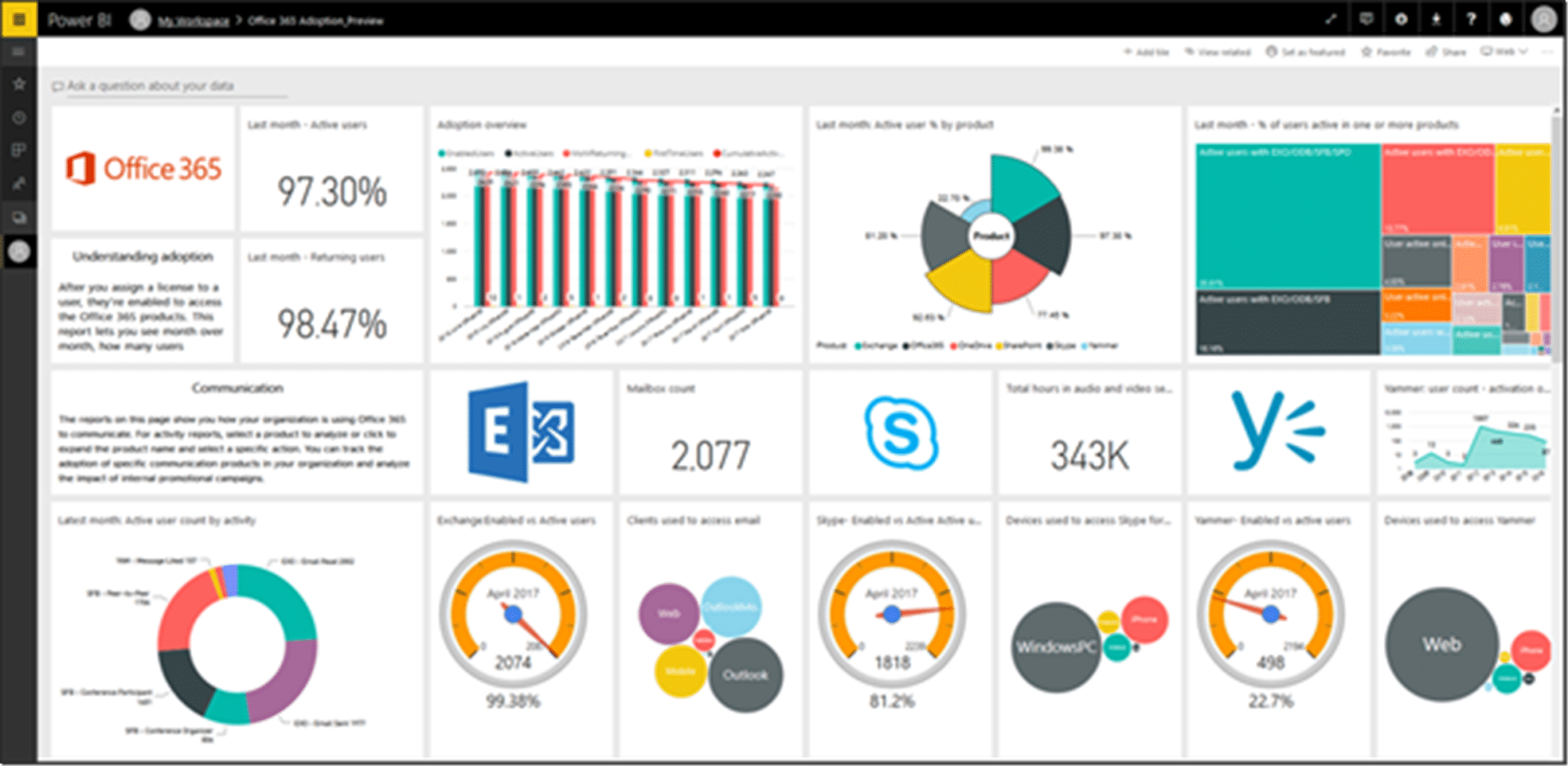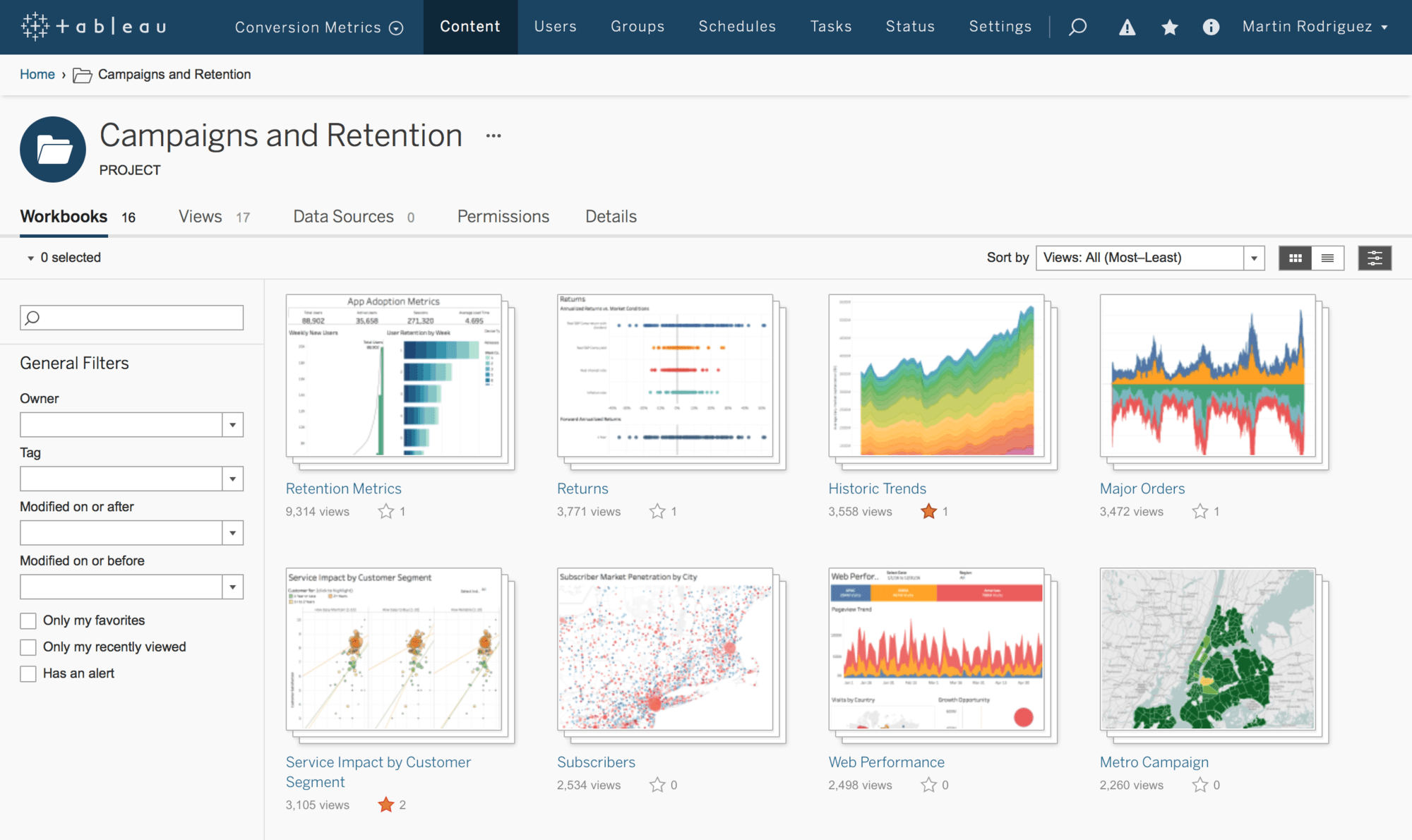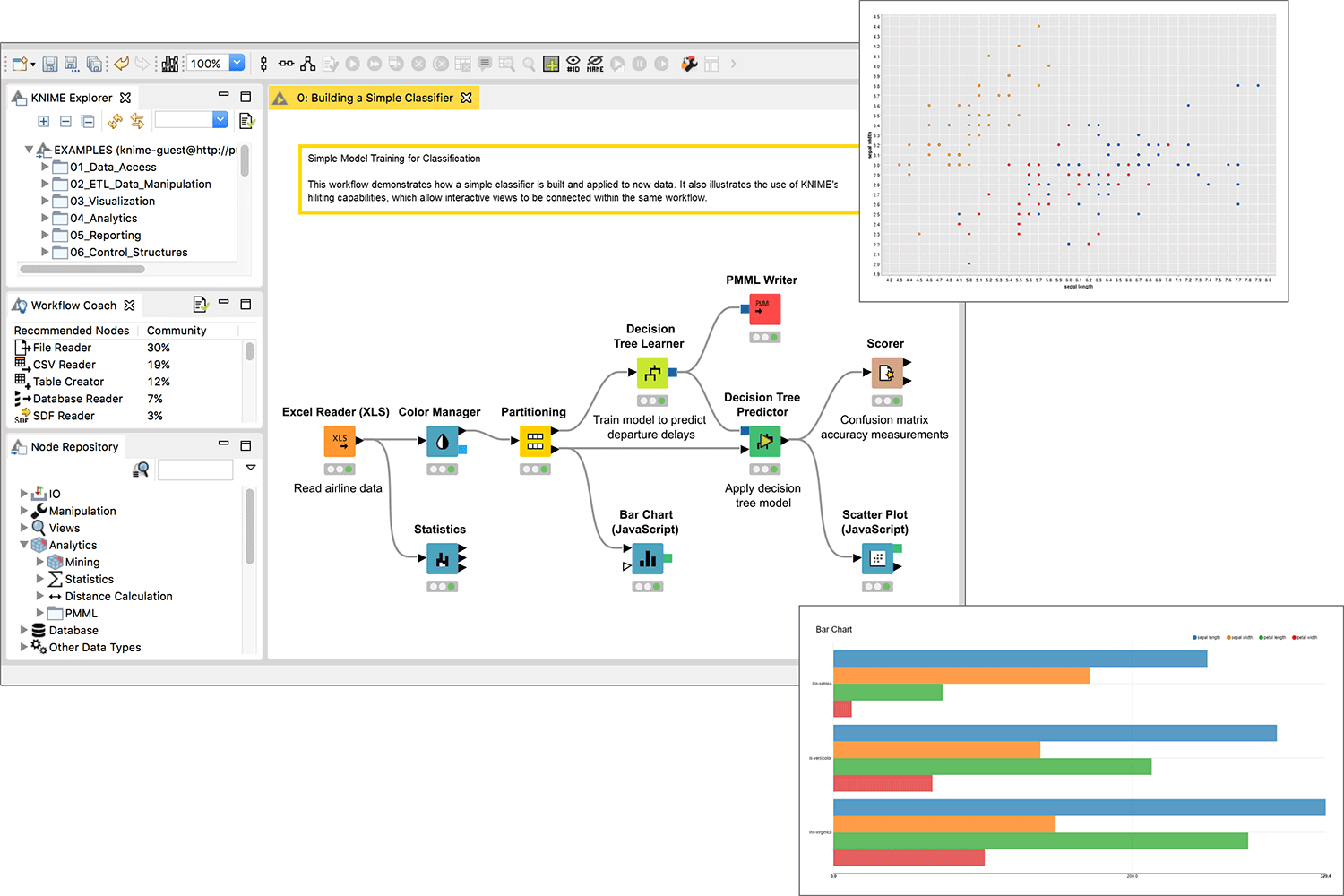With the right tools, data analysis can be a breeze. Instead of having to add, process, and model data manually, data analysis tools allow you to do so at the push of a button, often using convenient visualizations. More businesses turn to companies to analyze Big data at high velocity, but some of them prefer to analyze data on their own. In this article, we'll review 10 of the best data analysis tools for enterprise customers, including open-source, free, and paid SaaS solutions.
Power BI
Power BI is one of the most popular data analysis tools from tech giant Microsoft. The solution is aimed at enterprise users, offering numerous data collection, transformation, and visualization features. It consists of a desktop application, mobile application, and SaaS service, which means it can be accessed whenever and wherever.
This tool may be a great choice for companies looking to analyze data from an existing stack of Microsoft-based products. Out of the box, Power BI can connect to Microsoft Azure — the cloud computing service — and Microsoft 365.

Microsoft Excel
Perhaps one of the best-known data analysis tools is another Microsoft product — Excel. Primarily designed as a spreadsheet application, it offers all the statistical features you could ever hope for. This makes it an excellent choice for quantitative data analysis, where statistical methods are often most effective.
In addition to basic spreadsheet functionality, Microsoft Excel is also famed for various data visualization features, such as graphs and charts. With that said, one of the most powerful parts of Excel is its macro programming language, which makes it possible to conduct large-scale, automated data analysis procedures.
Google Data Studio
From one tech giant to another, the next data analysis tool on our list is Google Data Studio. This solution is built around dashboards and reports, which collect and visualize data in one single place. It's an excellent fit for enterprises already relying on various Google SaaS offerings, like Analytics, Ads, or BigQuery.
A major benefit of Google Data Studio is the huge number of Google- and community-built connectors, which allow you to connect dashboards and reports to a wide variety of data sources. Aside from Google products, you can also connect to Amazon, Adobe, Facebook, LinkedIn, Twitter, and numerous other data sources.
OpenRefine
OpenRefine, formerly known as Google Refine, is open-source data analysis tools primarily built for processing data. Offering behavior half-way between that of a spreadsheet and database, this tool allows you to "explore", "clean and transform", and "reconcile and match" data.
Unlike other tools on this list, OpenRefine is less suited to the average enterprise user. Instead, it's a more technical solution, which can help backend engineers to process raw data before passing it onto other applications or tools.

Tableau
Tableau is a well-known data analysis platform frequently used for business intelligence needs. The platform consists of multiple products, each designed to suit a specific type of customer. Their popular SaaS offering is Tableau online, a cloud-hosted solution for managing data. A more traditional offering is Tableau Server, which allows you to host a private installation on your servers of choice.
In either case, you can interact with Tableau products through a range of mobile and desktop clients. All of these offer powerful features to interact with and visualize data, with charts, maps, and graphs. Like other products on this list, Tableau supports numerous data integrations out of the box.
KNIME
Like OpenRefine, KNIME is an established open-source data analysis tool. As far as most users are concerned, KNIME has it all: it allows you to create visual data flows, adding various data transformation operations along the way. Not to mention, it supports numerous statistical methods for quantitative data and even has text analytics features. Since it's open-source, there are plenty of add-ons and integrations for KNIME, which allow you to seriously extend its functionality. For example, it's a popular starting point for machine learning data processes, supporting numerous machine learning add-ons.
Importantly, KNIME is a much less user-friendly tool than SaaS data analysis tools. As such, it's best used by backend data engineers, who can then pass processed data onto more accessible tools.

RapidMiner
RapidMiner is a commercial data analysis tool built around an open core. Functionality-wise, it offers many of the same features as KNIME, with a slightly different implementation. Data loading, processing, and modeling are just some of the processes this tool supports. Out of the box, it also supports numerous artificial intelligence features.
A major factor to bear in mind is that using RapidMiner for commercial purposes requires a license, which starts at a considerable $5,000.
OpenText
OpenText is a major solution for enterprise information management. Like many other SaaS data analysis tools, it offers a cloud-based solution, which makes for easy accessibility from a range of devices. Specific products include Enterprise Content Management, Business Network, and Digital Process Automation.
Truth be told, it's hard to condense what OpenText offers into a single sentence. However, the wide range of products and features might make it the ideal one-stop shop for some enterprises' data needs.
Weka
Weka is a free tool for mining, processing, and visualizing data. Its primary focus is machine learning, supporting numerous machine learning processes out of the box and having the ability to connect to additional machine learning packages.
While Weka does have a graphical user interface, it's definitely designed more for the experienced data analyst.
Orange
Orange is yet another open-source data analysis tool. Like OpenRefine and KNIME, it offers features for data mining and processing through visual workflows. It also offers machine learning and predictive analysis features, making it ideal for more involved data analysis.
How to choose the best data analysis tools
As you can see, there are a plethora of data analysis tools out there. From convenient, cloud-based SaaS products like Microsoft Power BI, Google Data Studio, and Tableau, to open-source tools like OpenRefine, KNIME, and Orange, these data analysis tools offer all of the data analysis capabilities you could hope for. Ultimately, the data analysis tools you choose will depend on your analysis needs and your IT skill level. In any case, there's definitely a place for each of these solutions!








